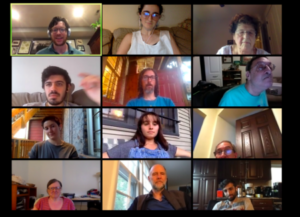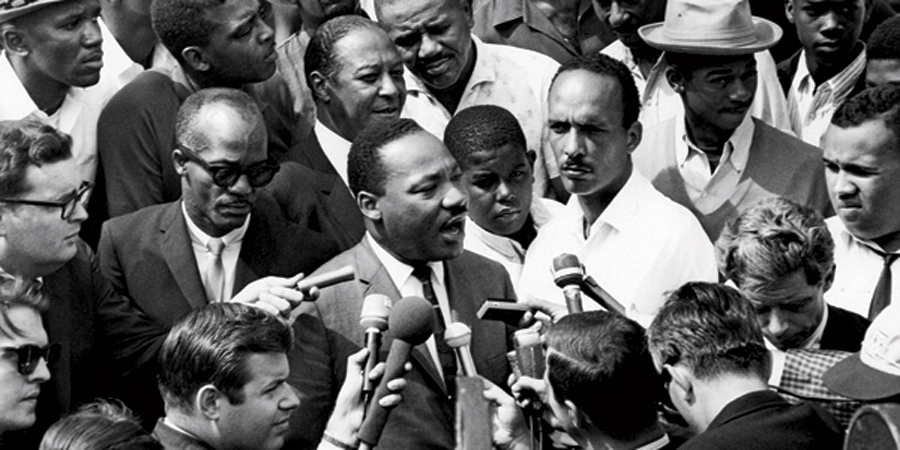White Jews explore their unique roles in dismantling white supremacy
One of JCUA’s new and steadily growing initiatives is the White Racial Justice Working Group (WRJWG), which I co-founded in 2019 as a space for JCUA’s white Jewish members to work together to dismantle white supremacy.
Our working group calls upon the idea of an affinity space, an intentionally separate space for people with a certain identity — in this case white Jews — to gather and learn in ways not possible in multiracial spaces. Affinity spaces are tools that have been used across social movements to raise political consciousness and examine each of our unique roles in dismantling white supremacy.
We know that as Jews and as white people committed to racial justice, we have a very specific role to play. While many of us hold experiences of oppression quite close to our hearts and personal narratives, we also know that our ability to move through the world as white people has eased our path greatly. We know our whiteness has allowed us to build wealth in this country, pursue educational and professional opportunities, and access safe and secure housing for our families. We also know there are specific moments in history where white Jews have separated ourselves from other marginalized groups in order to gain access to certain benefits, at the expense of people of color. This history gives us a unique responsibility.
In 2018, following JCUA’s first racial justice training, a fellow JCUA member Aaron Wolfson and I founded the White Racial Justice Working Group. The training had emphasized that the pursuit of racial justice requires ongoing effort and accountability. But we wanted something more. This work is essential, and it is also difficult and uncomfortable. We needed to create a framework for pushing ourselves forward — a structure for processing our emotions, learning and unlearning, retraining our behaviors, and taking action to shift power. And we needed to recruit a team of allies to share this work with us, so that we would know we weren’t alone, and so that we could multiply our efforts.

As white folks gathering in an affinity space, there’s no need to recreate the wheel. The path is clear. People of color have told us very specifically what to do and where to go. It is simply our job to follow. We take cues from organizers and teachers around the country, organizers in Chicago, and our beloved members of JCUA’s Kol Or Caucus for Jews of Color every step of the way.
What started as one cohort of ten members and two facilitators has grown into two cohorts of 25 members and four facilitators. The cohorts are intergenerational and include participants from the teen and college organizing fellowships along with members from each of JCUA’s organizing committees. Through eight structured monthly sessions, built-in havruta (discussion partner) pairings, and a narrative arc for learning and accountability, we are able to stay purposeful in our working groups.
When we enter an affinity space, we are pushed to reflect on and confront the racism that manifests itself in our personal and communal lives — a process that can be very hard for white people who are part of the dominant culture. Naming all we have internalized from our culture is messy; it doesn’t feel good to acknowledge harm.
But through regular meetings, we are able to shed some of the shame and feelings of paralysis that are extremely common, and center the concept of t’shuvah.
T’shuvah, which translates to return or repair, is one of the deepest values in Judaism. When our working group meets, we return over and over again to this concept that we can heal ourselves and form a more just world and community by recognizing our own responsibility and re-shaping our beliefs and behaviors. We do this so that we can be more accountable when racism shows up in our world and, especially in our Jewish spaces.
The WRJWG is also critical for our movement work as JCUA. If, when we show up in multiracial, multigenerational organizing committees and on campaigns, we are not clear on our own identities as white Jews, with all of the privileges we bring to a space, then we risk getting in the way of the work and causing harm to others. We also do a disservice to ourselves. We know that the stakes are too high for us to be stumbling over our privilege. So in the WRJWG, we can really fine tune our skills and equip ourselves with the tools that we need to participate more justly in our multiracial organizing.
It is important to recognize that an affinity group that centers whiteness is only possible at JCUA because we already have the Kol Or affinity space for Jews of Color. Creating an all-white space before first creating a safe space for People of Color can be harmful because it replicates the centering of whiteness under the guise of anti-racist work.
We know that white Jews’ security in whiteness is precarious, even as white Jews benefit every single day from our inclusion and participation in racist systems in our country. Meanwhile, we know that white supremacy and racism harm our multiracial Jewish community, and so many other marginalized groups in our country. Through the WRJWG, we are able to take stock of our internalized white supremacy in partnership with one another. This allows us to move away from isolation and shame and into community and move toward justice and holy action in our personal and collective communities.
To those who are reading this, we invite you to join our JCUA community by becoming a member. While the system and culture of white supremacy seeks to isolate and divide us, we know that when we come together in our multiracial, multigenerational communities, we are capable of building greater power and solidarity to address the injustices that underlie our beloved communities. Together, at JCUA, we organize across Chicagoland, across our congregations, and learn through our trainings how to bridge the gap between the world as it is and the world as it could be.



